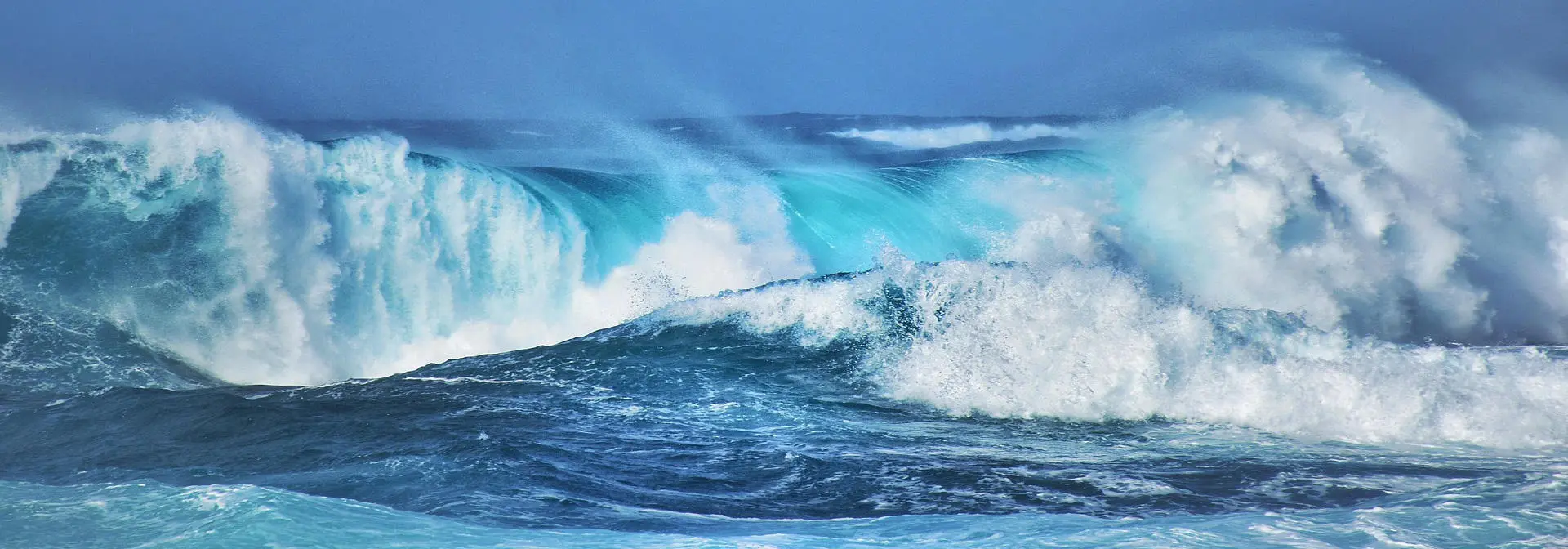Key information
As tidal stream energy scales up to national grid-scale significance, interactions between large tidal arrays may become increasingly important.
- Code
- EGIS2025-SW
- Funding
- Fully funded (Students worldwide)
- School
- Energy, Geoscience, Infrastructure and Society
- Location
- Orkney
- Award
- PhD
- Supervisor
- Simon Waldman
- Start date
- January
- Closing date
- Friday, 28 November 2025
- Duration
- 42 months
Project description
As tidal stream energy scales up to national grid-scale significance, interactions between large tidal arrays may become increasingly important. Energy extraction at one location will affect flow – and therefore both energy yield and environmental impacts – for tidal farms in other parts of the same region, e.g. in parallel channels. An introduction to the potential effects, and their implications.
This project will take a numerical modelling approach to answer two initial questions:
- How does flow diversion caused by tidal arrays affect nearby channels – and other tidal arrays in those channels – and how does this depend on channel geometry?
- Are these inter-array effects significant enough to influence planning, yield prediction, and environmental assessment in realistic deployment scenarios?
Further research will be guided by the answers to these initial questions, and depending on the PGR’s interests could include aspects of,
- Further technical investigation of inter-array effects
- Improvements in the state of the art for simulation of tidal energy extraction
- Aspects of policy and governance: how could regulators and developers optimise a region with multiple large tidal farms owned by different companies?
The results of the project are expected to contribute to reducing tidal energy development costs and environmental impacts.
Introductions will be made to industry stakeholders, including tidal developers and the European Marine Energy Centre, for advice on realistic deployments and as networking opportunities for the successful candidate.
Candidate profile and development
We seek a postgraduate researcher with an interest in marine renewable energy and a background in renewable energy, physical oceanography, physical geography, applied maths, coastal engineering or other relevant discipline. Experience with numerical modelling is desirable but not required. A strong existing IT aptitude would be an advantage, as would experience with any of Python, MATLAB, or the linux command line.
The successful candidate will become an expert in tidal energy and regional-scale hydrodynamic modelling. Access will be available to the university’s High-Performance Computing cluster. Training will be offered in best practices for reproducible computational research.
The project will be based at Heriot-Watt’s Orkney campus – a centre for the marine energy sector. Splitting of time between Orkney and the Edinburgh campus will be considered on request.
Application Deadline
The closing date for applications is 28 November. We expect interviews to take place in December 2025. Applicants should ideally be available to start in January 2026 but must be available to start by May 2026 at the latest.
References
Waldman, S., Weir, S., O’Hara Murray, R.B., Woolf, D.K.,
Kerr, S., 2019.
Future policy implications of tidal energy array interactions. Marine Policy 108.
Waldman, S., Yamaguchi, S., O’Hara Murray, R., Woolf, D.,
2017.
Tidal resource and interactions between multiple channels in the Goto Islands, Japan.
International Journal of Marine Energy 19, 332–344.
Draper, S., Adcock, T.A.A., Borthwick, A.G.L., Houlsby,
G.T., 2014.
Estimate of the tidal stream power resource of the Pentland Firth.
Renewable Energy 63, 650–657.
Project supervisor
Please contact Dr Simon Waldman (Simon.Waldman@hw.ac.uk) for further information or an informal discussion.
Please contact egis-pgr-apps@hw.ac.uk for technical support with your application.

Entry requirements
Candidate criteria
This project is open to ALL students, whether home, EU or overseas.
The successful candidate will have at least an upper second-class (2:1) undergraduate honours degree in the relevant subject area and ideally a Masters Degree. We may also consider candidates who can demonstrate appropriate alternative learning such as experience gained in the workplace or professional qualifications.
Degree, or other experience, in a relevant discipline: eg oceanography, physics, applied maths, coastal engineering, environmental science or engineering, etc. Some experience with numerical modelling is desirable but not required. Strong IT aptitude, including experience with any of Python, MATLAB, or the linux command line, would be an advantage.
Applications and enquiries
- To apply you must complete our online application form.
- Please select PhD Enviroment as the programme and include the full project title, reference number (EGIS2025-SW) and supervisor name on your application form. Ensure that all fields marked as ‘required’ are complete.
- Once have entered your personal details, click submit. You will be asked to upload your supporting documents. You must complete the section marked project proposal; provide a supporting statement (1-2 A4 pages) documenting your reasons for applying to this particular project, outlining your suitability and how you would approach the project. You must also upload your CV, a copy of your degree certificate and relevant transcripts and an academic reference in the relevant section of the application form.
English language requirements
If your first language is not English, we'll need to see evidence of your English language ability.
The minimum English language requirement for entry to this programme is IELTS 6.5 (or equivalent) with no score lower than 6.0.
If you do not have IELTS 6.5, we offer a range of English language courses to help you meet the English language requirement for this programme prior to commencing your studies.
For more information about your application and our English Language requirements, please see Section 10 of our page on English Language Requirements as part of your application.
Funding information
This is a full scholarship which will cover tuition fees (Home and Oversees) and provide an annual stipend (currently £20,780) for 42 months.
Thereafter, candidates will be expected to pay a continuing affiliation fee (currently £130) whilst they complete writing up their thesis.
Why Heriot-Watt
We're the top university in Scotland for graduate outcomes which means that more of our graduates are employed or in postgraduate education than any other institution in the country and we ranked 5th in the UK.
We're also rated number one in the UK for CEO or MD roles, meaning more of our graduates go on to become CEOs or MDs than any other university in the whole of the UK. On top of that, we have beautiful campuses, across the globe, so you'll get a truly international education. Our Edinburgh Campus is home to Oriam, Scotland's National Sports Performance Centre combined with plenty of wellbeing resources, prioritising fitness and mental health for all students. Our Global Research Institutes look at solving real world issues such as climate change and saving our oceans as well as working on the next medical technological breakthrough and the future of AI and robots.
